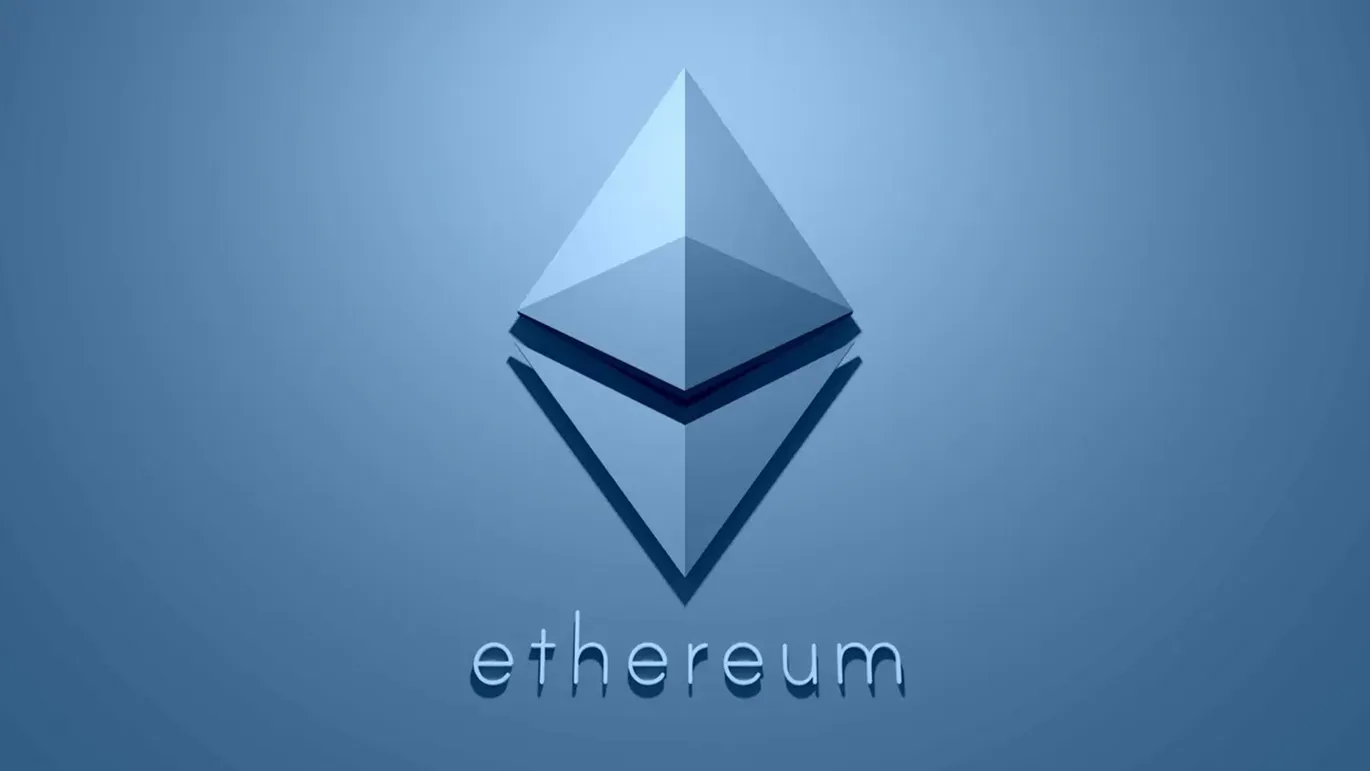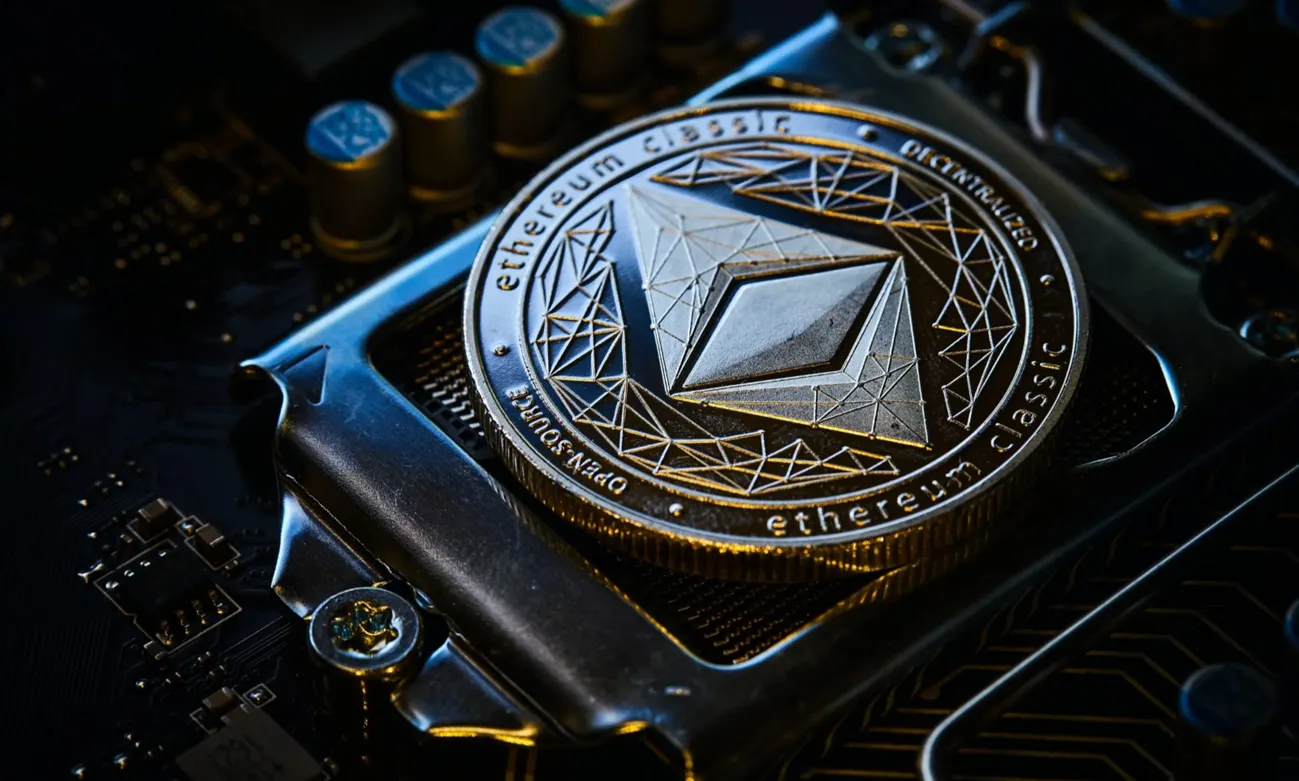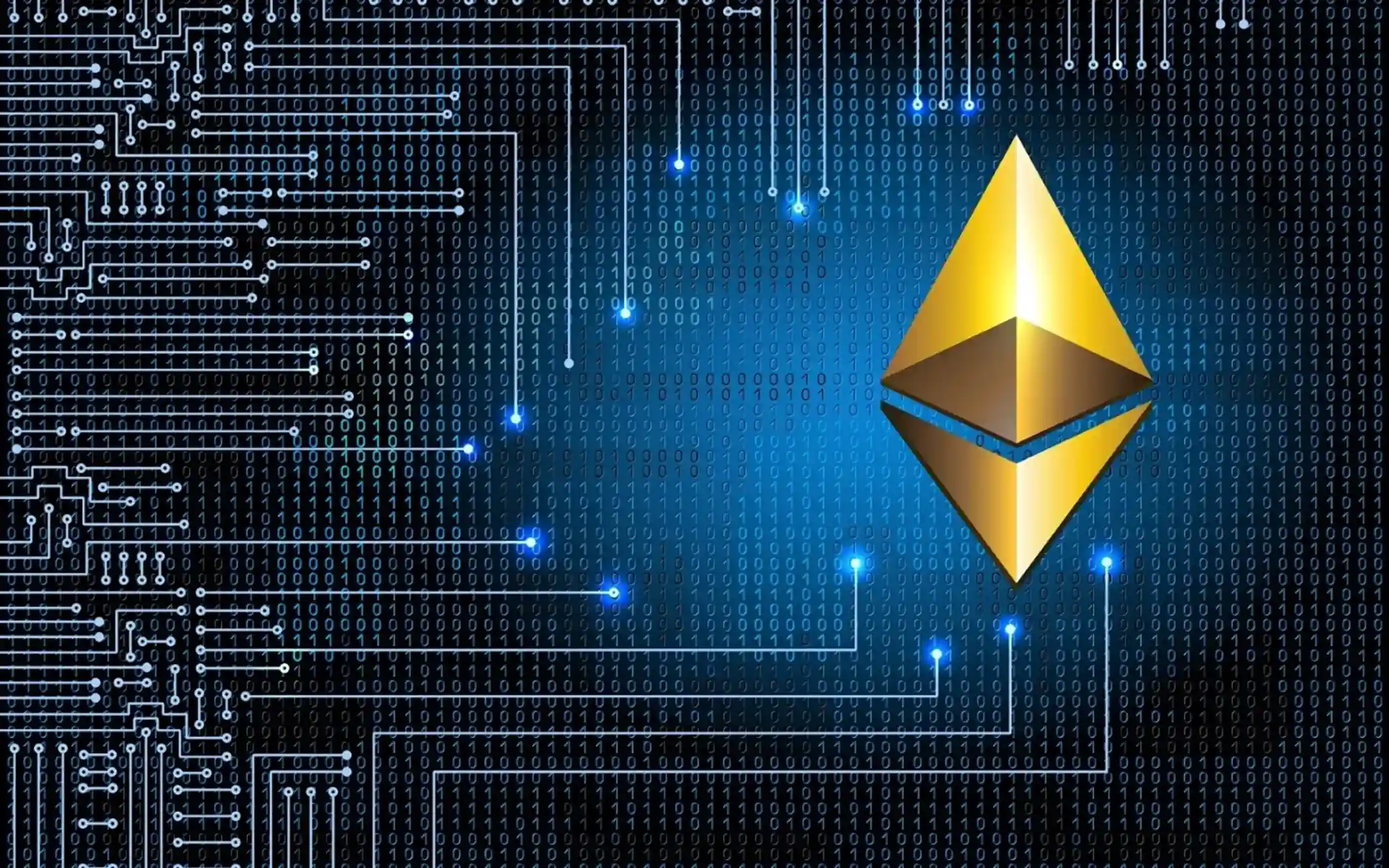Individuals often ask what Ethereum is. Ethereum is a kind of digital currency or cryptocurrency, a medium of exchange that exists exclusively online. Ethereum, a popular cryptocurrency, ranks second in size behind Bitcoin, the crypto icon.
People have different thoughts on cryptocurrency. Opinions on this matter vary greatly, with some viewing it as a groundbreaking development in the world of payments, while others remain skeptical and consider it to be nothing more than overestimated hype. This article will go deeper into what is Ethereum used for and how does Ethereum work.

What is Ethereum?
Recently, many digital currencies have emerged, including Ethereum. Eight people created Ethereum, and first appeared in 2015. Ethereum is a platform and cryptocurrency where ether is the unit of measurement (2 ether, 17 ethers, etc.).
When you use Ethereum, the currency is managed and tracked by a decentralized computer network, a blockchain. A blockchain can be compared to a running receipt for all crypto transactions, which can be helpful. Computers in the network check the transactions and make sure the information is correct.
Their decentralized network is a key feature that makes Ethereum and similar cryptocurrencies attractive. Users can trade money without a bank, making the currency nearly autonomous. Ethereum provides nearly anonymous transactions, even if they are public on the blockchain
It's important to shift our perspective and see cryptocurrency beyond just a means of exchange for money. Rather, we should view it as a token with a specific purpose, made possible by the Ethereum platform. The coin, for instance, makes it possible to send money or purchase and sell products. However, Ethereum is capable of much more, serving as the foundation for additional apps and smart contracts.
The Background of Ethereum
|
📅 November 2013 |
Release of the Ethereum whitepaper by Vitalik Buterin. |
|
🌐 January 2014 |
The Ethereum platform was made public when it was first under development. The founding members of the Ethereum development team were Charles Hoskinson, Mihai Alisie, Anthony Di Iorio, and Vitalik Buterin. |
|
💰 August 2014 |
Ethereum raised $18.4 million after its initial coin offering. |
|
🚀 May 2015 |
The Ethereum testnet is called "Olympic." |
|
🌍 July 30, 2015 |
"Frontier," the initial phase of Ethereum's development, was released. |
|
🚢 March 14, 2016 |
Homestead, the first "stable" release of Ethereum, was on block 1,150,000. |
|
💸 June 2016 |
A hack took $50 million worth of Ether from the DAO. 15% of Ether was in circulation when this happened. |
|
🔄 October 25, 2016 |
Ethereum Classic splits off from the main Ethereum protocol. |
|
🛠️ October 16, 2017 |
Metropolis Byzantium undergoes a hardfork update. |
|
🚨 February 28, 2019 |
There is a hardfork update for Metropolis Constantinople. |
In its most basic form, Ethereum is an open software platform that allows programmers to create and implement decentralized applications using blockchain technology.
How does Ethereum work?
A third person or group does not control Ethereum. Codes instead manage them. Several interconnected parts ensure the proper operation of Ethereum.
- Smart Contracts: Smart contracts are the driving force behind Ethereum's system being code-controlled rather than governed by a third party. When predetermined criteria are satisfied, smart contracts operate on their own without the assistance of a third party. Any cryptocurrency involves smart contracts. They are not limited to and can be used outside of Ethereum; however, they are best recognized for their use on Ethereum. Bitcoin also supports basic smart contracts; however, their uses are more restricted than Ethereum's. Some developers and experts have condemned smart contracts for potentially exposing security flaws.
- Ethereum Blockchain: All executed smart contract history is kept on this ledger. Globally, hundreds of nodes keep a copy of the whole blockchain in storage. When a smart contract is performed, thousands of computers process it to ensure all the rules are obeyed. The nodes contain more than just transaction data. Nodes also keep track of accounts, smart contract codes, and the state of smart contracts. All nodes verify transactions and are connected.
- The Ethereum Virtual Machine (EVM) plays a crucial role in the Ethereum network, enabling the functionality of smart contracts. The programming language used for smart contracts is not easily comprehensible by computers. This changes them to bytecode, a language that computers can read. The EVM can execute at least 140 distinct codes that perform certain tasks.
- Ether: Ether is the native coin of Ethereum, as was previously mentioned. There are two kinds of accounts in which ether is kept. Users store and send Ether using externally owned accounts, and the accounts that contain smart contracts are called contract accounts.
- Proof-of-Work: After creating a transaction block, miners try to find the right value of the block by creating values until they find it. When the miner finds it, a hash value is relayed across the network for the nodes to verify. The miner gets the Ether unlocked when it finds the hash if it is validated. However, there is a proposal to transition to a new method known as proof-of-stake, which is expected to use less computer power and electricity than proof-of-work.
Ethereum Use Cases

Decentralized Finance (Defi)
Decentralized finance" describes financial services and goods offered to anyone using Ethereum. Markets are always open with Defi; no government can prevent payments or refuse users access. Since the services are automated and controlled by code, human mistake is no longer possible, and everyone may view the codes. Some issues with traditional finance are as follows:
- preventing a person from using financial services;
- financial services have the potential to keep someone from getting paid;
- restriction of trade hours to particular time zones;
- governments and centralized organizations can stop the markets whenever they choose.
With the Defi system, money is held and controlled entirely by the user, funds transfers are instantaneous, accessible to all users, and the market is constantly open. Users can do much more, like sending money to any country globally, exchanging tokens, purchasing insurance, borrowing money with or without collateral, and accessing stable currencies.
Non-Fungible Tokens (NFTs)
NFTs are tokens exclusive to a certain object and cannot be exchanged for any other token. They make it possible to assign value in digital currency to works of art, music, etc. They can only have one owner at a time and are secured on the Ethereum blockchain. No two NFTs may be the same; one cannot be copied and pasted into another. Anything created on the Ethereum platform can work with them. Owners of NFTs have access to the worldwide market and can sell them anywhere.
Decentralized autonomous organizations (DAOs)
DAOs run on smart contracts and are owned and managed collectively by their members. They are internet-based and have internal treasuries that can only be accessed with group permission. To enable everyone in the group to voice their thoughts, they decide by making suggestions and casting votes. The DAO code contains regulations controlling their spending; no CEO or CFO exists. They run a democratic system with transparent codes and procedures. The votes are necessary before any changes can be made; they are automatically tabulated. Charity organizations, businesses, freelancer networks, etc., are a few examples of DAOs.
Is it wise to invest in Ethereum?
The value of Ethereum has increased dramatically over the past several years, making those who invested early on profitable. However, it's crucial to comprehend what you're investing in rather than focusing on yesterday's price movements and becoming anxious about missing out. Thus, anyone purchasing Ethereum purchases a cryptocurrency not supported by physical assets or cash flow.
These small differences are what make stocks and cryptocurrencies different. A stock is a small piece of a company, so how well it does over time depends on its overall performance. The price of the company's stock will change if it makes more money. Investors physically own parts of a business's assets and cash flow.
In contrast, Ethereum and the majority of other significant cryptocurrencies are unbacked. Some investors believe the cryptocurrency coin's price is high because others also believe it will continue to increase. This is known as the "greater fool theory," where investors hope to sell their coins to someone else for a higher price later. The sole factor pushing Ethereum, and other cryptocurrencies upward is speculation.
This is why renowned investor Warren Buffett avoids Bitcoin and has even been known to refer to it as "rat poison squared." Buffett's strategy is a useful indicator of the long-term potential of cryptocurrencies.
Is it better to mine or buy Ethereum?

To engage in Ethereum speculation, you only need to purchase and trade the cryptocurrency on a well-known exchange like Binance or Robinhood. With good liquidity and round-the-clock access to the market, you may deal without significantly affecting the price. The profit calculation is easy: when coins sell for more than you paid, you make money.
It is best to approach Ethereum mining like a commercial enterprise. You must buy expensive, energy-intensive mining rigs. Thus, you must calculate whether starting and running a business is worthwhile. You aim to mine more coins than you paid before you started.
Most notably, miners will no longer be required when Ethereum switches to a proof-of-stake structure. Rather, the system will be supervised by validators verifying cryptocurrency transactions. For this reason, one Ethereum engineer advises against purchasing additional mining gear. In the end, purchasing Ethereum is simpler and takes less work than mining it. Cryptocurrency mining may still have profit possibilities, but you'll have to see if the numbers add up.
Ethereum Advantages
- Large, existing network. Ethereum offers the advantages of a proven network tested over years of operation and billions of value exchanged hands. It has the largest blockchain and cryptocurrency ecosystem and a strong and committed global community.
- Wide range of functions. Ethereum is a digital currency that can also perform other types of financial transactions, carry out smart contracts, and store information for use by third-party applications.
- Constant innovation. A vast Ethereum developer community continuously seeks new methods to improve the network and create new applications. According to Avital, Ethereum is frequently chosen as the blockchain network for innovative, thrilling, and occasionally dangerous decentralized apps because of its widespread use.
- Avoids intermediaries. The decentralized nature of Ethereum's network is expected to enable users to do away with middlemen such as third-party web hosts, banks that operate as middlemen in financial transactions, and attorneys who draft and interpret contracts.
Ethereum Disadvantages
- Rising transaction costs. Because of Ethereum's growing popularity, transaction costs have risen. Ethereum transaction costs, or "gas," can vary and be expensive. That is advantageous if you are mining for money but not so much if you are attempting to use the network. Unlike Bitcoin, Ethereum forces users to pay a fee, where the network rewards transaction verifiers.
- Potential for crypto inflation. Ethereum allows for the yearly release of up to 18 million Ether, but there is no cap on the total number of tokens that could ever be created. This could imply that Ethereum, which has a strict lifespan cap on the number of coins, would perform more like dollars as an investment and might not appreciate as much.
- The steep learning curve for developers. When developers transition from centralized processing to decentralized networks, learning Ethereum can be challenging.
FAQs
What is an account on Ethereum?
Ethereum has two account types: externally owned accounts (EOAs) and contract Accounts. An EOA is controlled by a private key, which can send transactions and has no associated code. When a contract account receives a transaction from an EOA, a code linked to it is triggered. A contract account cannot start transactions on its own. All transactions must start with an EOA.
What is a transaction on Ethereum?
An Ethereum transaction is a signed data transmission between accounts. Transaction info includes sender and recipient details, smart contract bytecode, Ether amount, and gas price/limit. Gas price/limit is the transaction fee the sender pays to network validators for recording the transaction in the blockchain.
How do I store ether, and where can I buy it?
You can easily buy Ether using fiat money through popular cryptocurrency exchanges like Kraken or Coinbase. Your Ethereum account is linked to Ether. You need your account address, passphrase, or private key to access your account and Ether.
What does it mean to sign a transaction?
Using the private key associated with the account of the transaction sender, a signature is generated on a transaction upon signing it. Before being sent to the network, transactions must be signed.
What does an Ethereum hard fork entail?
A hard fork is an alteration to the Ethereum protocol that introduces non-backward compatible new rules for protocol improvement. All Ethereum clients must update to avoid being stuck on an unsuitable chain with outdated regulations.